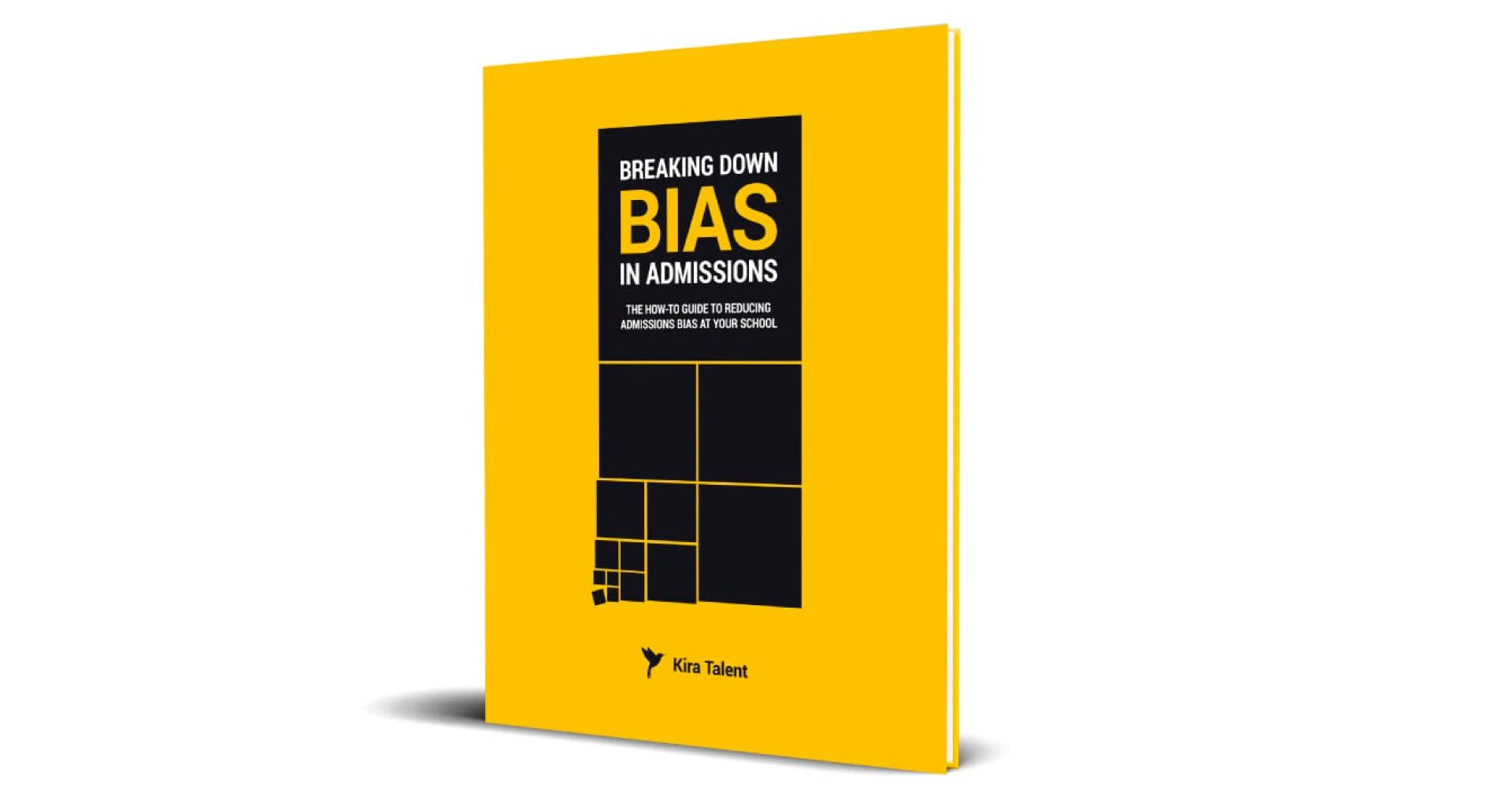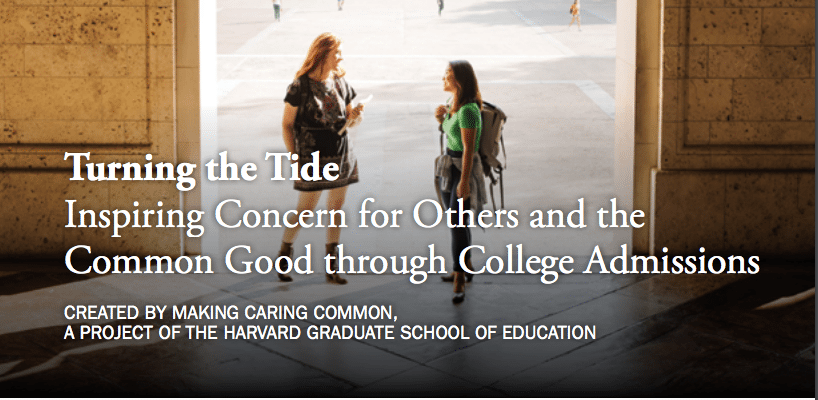A new report released by Harvard’s Making Caring Common project advocates for an overhaul of the way colleges assess students. Turning the Tide marks the first time that over 80 higher education institutes have come together for sweeping change in admissions.
Harvard argues that when we encourage young people to only strive for personal success in their teenage years (think: high test scores, individual projects and achievements, leading teams, awards), we inherently devalue many meaningful contributions to others and society.
Leading up to university application deadlines, many adolescents are pressured to be top of their class and complete a long list of extracurriculars, above all else. Subscribing to this self-motivated definition of success, over one that rewards people for helping others and giving back, creates students, and eventually, graduates who often lack incentive or inspiration to be ethical and engaged citizens.
Colleges and universities, however, have a role in educating and encouraging ethical engagement, citizenship and responsible work, and this education begins in the college admissions process.
Turning the Tide hopes to shift the traditional admissions process in three key ways:
- Give a more weighted value to applicants’ authentic and meaningful contributions to others and society.
- Finding ways to assess ethical engagement that consider and reduce biases between race, culture, and class.
- Rethinking ‘achievement’ to reduce excessive achievement pressure on students and level the playing field for students with varying levels of opportunity.
While, the authors admit that there is no way to completely eliminate "gaming" community service quotas or eliminating achievement pressure, the idea is to create a culture where we teach students to find out where they want to contribute and are encouraged and rewarded for their authentic interest and efforts.
Want to read the report? We recommend it:
Turning the Tide: Inspiring Concern for Others and the Common Good through College Admissions




